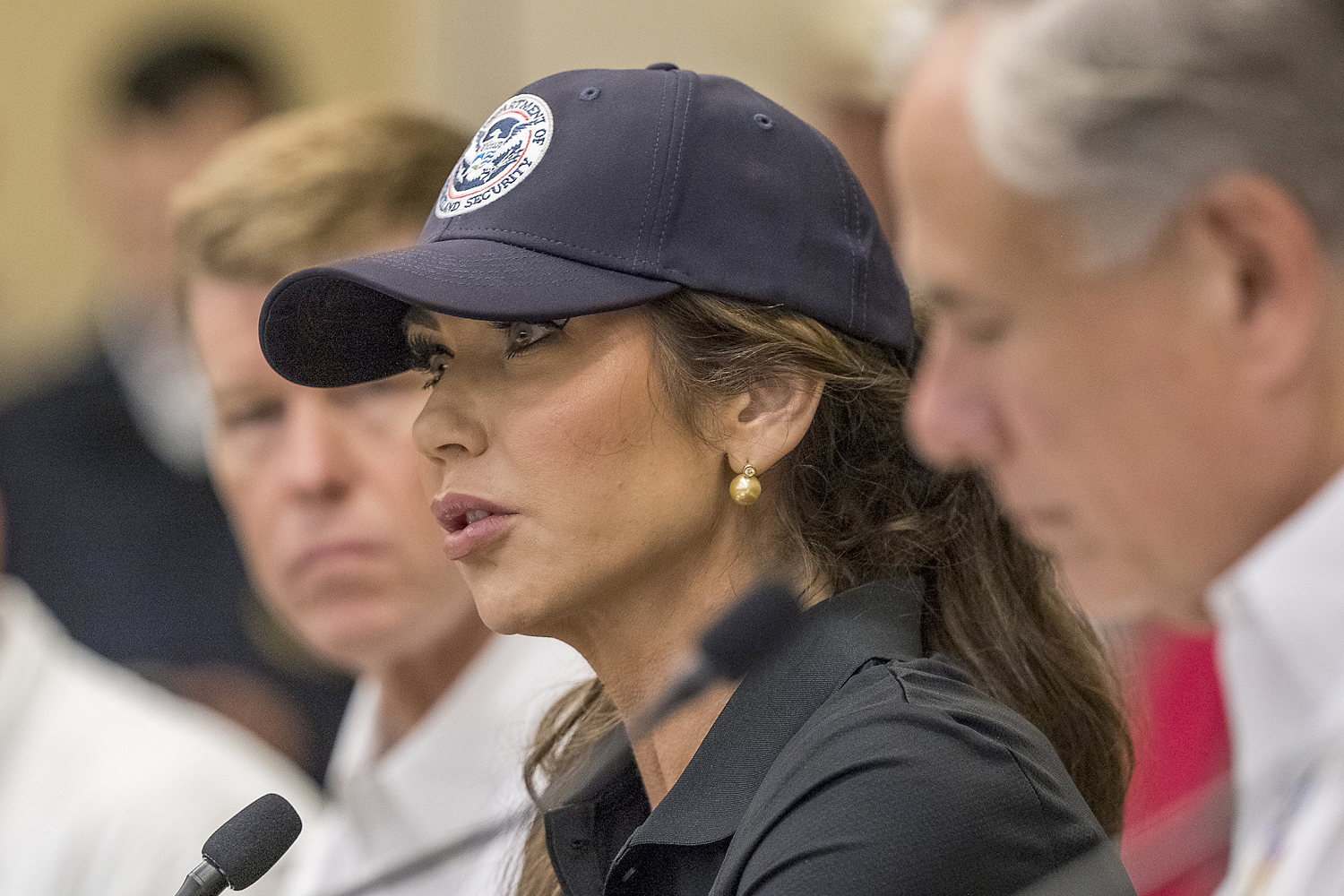
Homeland Security Secretary Kristi Noem’s handling of Texas’ deadly floods has become controversial for a variety of reasons, especially amid questions about when, exactly, she deployed FEMA resources — and whether she should’ve acted sooner.
But The Washington Post published a related report about the significance of a memo Noem issued a month ago, which requires Department of Homeland Security personnel to get her personal approval on spending in excess of $100,000. From the Post’s article:
Deployments of critical resources, such as tactical and specialized search and rescue teams, were delayed as a result of a budget restriction requiring Homeland Security Secretary Kristi L. Noem to approve every purchase, contract and grant over $100,000, according to a dozen current and former FEMA employees who spoke on the condition of anonymity because they were not authorized to speak with the media.
The Post’s report, which has not been independently verified by MSNBC or NBC News, added that as efforts continue to respond to the deadly flooding in Texas, “other efforts by the administration to constrain spending have hampered FEMA’s operations.”
In time, there will hopefully be a comprehensive analysis of what transpired in Texas; what could’ve been done differently, before and after the flooding; and the degree to which relevant agencies responded to the crisis. But stepping back, these latest revelations about Noem and how DHS operates raise a related concern — about the scope of the Trump administration making government inefficiencies worse, not better.
This isn’t what Donald Trump promised on the campaign trail. When the then-Republican candidate talked about bringing Elon Musk into public service, Trump boasted about a bold “efficiency” campaign that would make federal agencies run more effectively.
It wasn’t long after the president’s second term began, however, when he started delivering the opposite results. Two months after Inauguration Day, for example, the Post’s Catherine Rampell (an MSNBC co-host) highlighted a variety of ways in which Trump appointees had made “the federal government almost comically inefficient.”
As part of her column, Rampell noted, “At the Bureau of Land Management, federal surveyors are no longer permitted to buy replacement equipment. So, when a shovel breaks at a field site, they can’t just drive to the nearest town or hardware store. Instead, work stops as employees track down one of the few managers nationwide authorized to file an official procurement form and order new parts.”
It came on the heels of a related Post report on the DOGE-imposed $1 spending limits on government credit cards. “A Trump administration freeze on purchase cards that agencies use to cover everything from dumpster pickups at national parks to liquid nitrogen for lifesaving military research is upending work across the government,” the article noted.
The same report added that “scientists who study food safety say they are running out of cleaning fluid for their labs; federal aviation workers report cuts to travel for urgent work; and contractors who help identify U.S. soldiers killed in combat were told to pause their efforts.”
This has not been a fleeting concern. The Post went on to report two months later on agencies and officials being “incapacitated” by new and unnecessary regulations:
At the Environmental Protection Agency, research at 11 laboratories has ground to a halt because the Trump administration has not approved most new lab purchases. At the National Oceanic and Atmospheric Administration, key work on weather forecasting has slowed to a crawl because Commerce Secretary Howard Lutnick must sign off personally on many contracts and grants. And at the Social Security Administration, some employees are running out of paper, pens and printer toner because the U.S. DOGE Service has placed a $1 spending limit on government-issued credit cards.
It’s not just spending restrictions, either. In some agencies, government operations have slowed to a crawl because vendors have to complete paperwork certifying their opposition to “diversity, equity and inclusion” policies.
What’s more, Trump and his team aren’t just creating new hurdles for federal employees and departments, they’re also poised to create related problems for the public. Indeed, among the most notable elements of the Republican Party’s far-right megabill are new bureaucratic requirements for Medicaid recipients, among others.
As The Atlantic’s Jon Chait recently explained: “Congress is not finding magical efficiencies. To the contrary, the bill introduces inefficiencies by design. The main way it will throw people off their health insurance is by requiring Medicaid recipients to show proof of employment. States that have tried this have found the paperwork so onerous that most people who lose their insurance are actually Medicaid-eligible but unable to navigate the endless bureaucratic hassle. The end result will be to punish not only the millions of Americans who lose Medicaid but also the millions more who will pay an infuriating time tax by undergoing periodic miniature IRS audits merely to maintain access to basic medical care.”
Nearly six months into the new era of Republican control, Americans are confronting more government, more bureaucracy, more paperwork, more breakdowns within federal agencies, more delays, and perhaps most importantly, more inefficiencies.
That’s the opposite of what Trump promised on the campaign trail.
